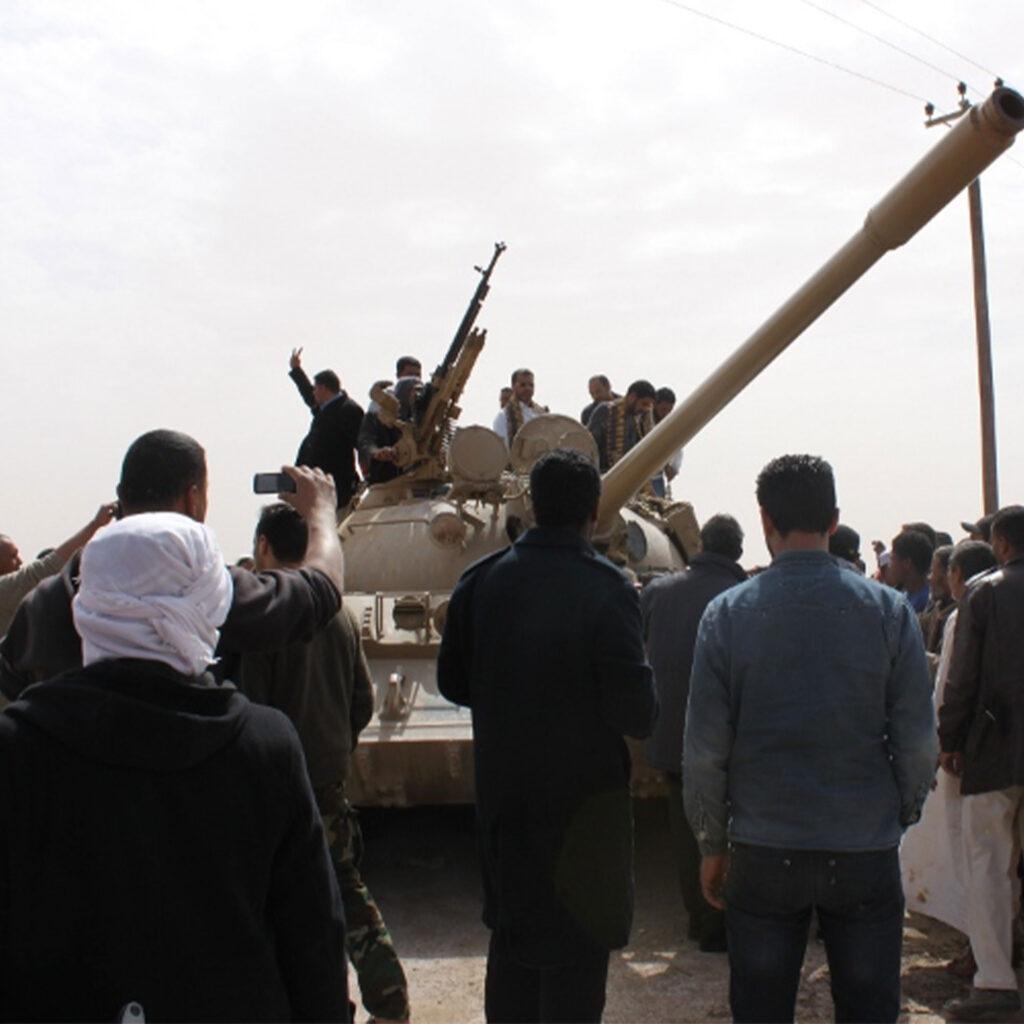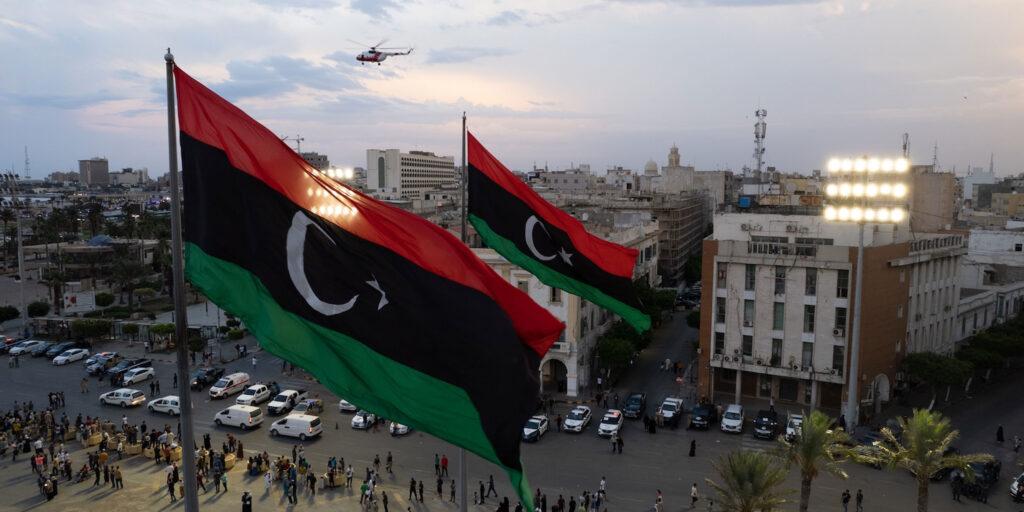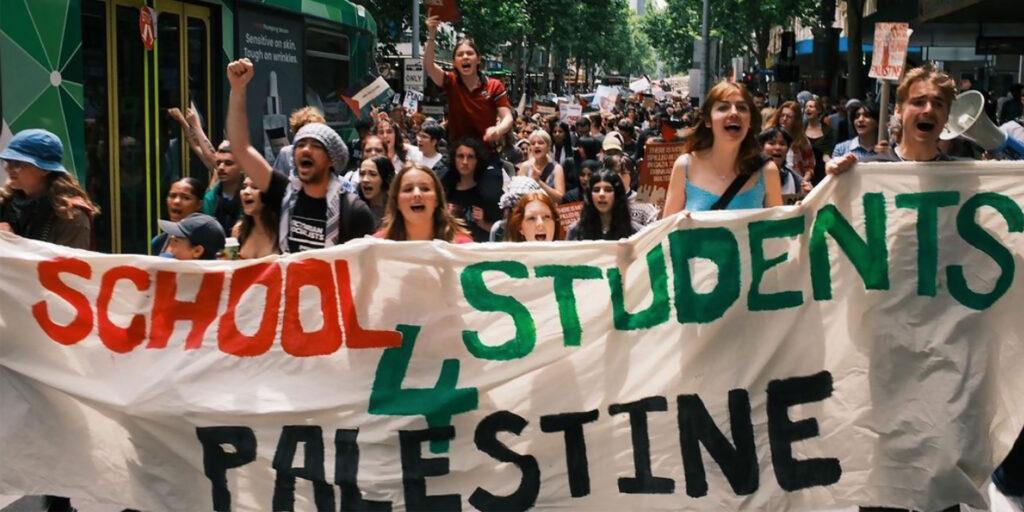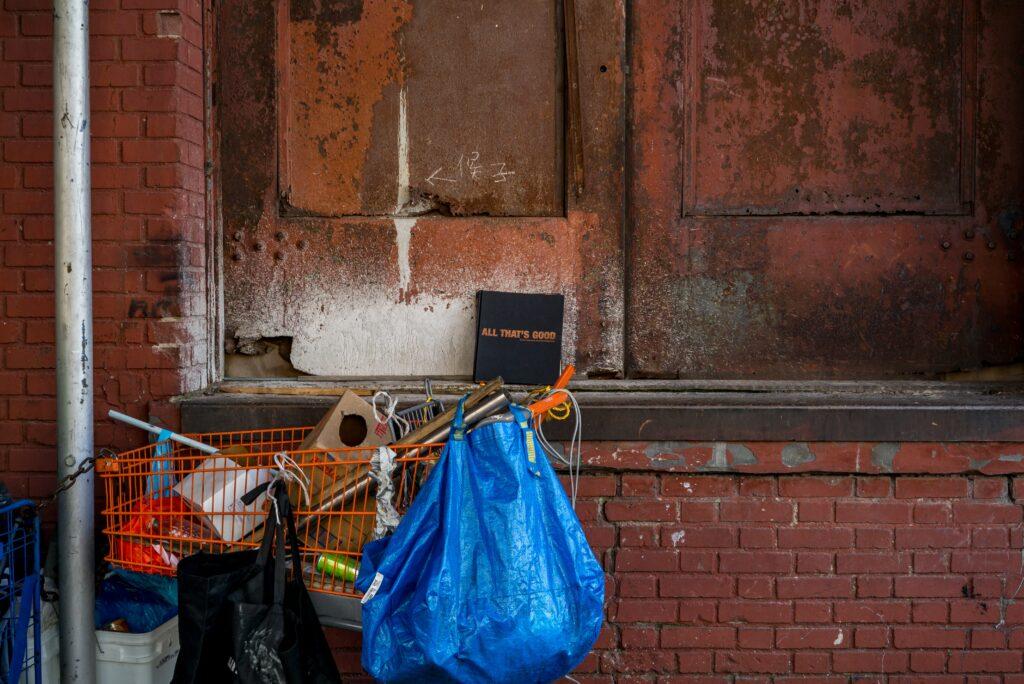In March 2011 the US, Britain and France began enforcing a UN-declared ‘no fly’ zone by bombing Libya. Barack Obama and French president Nicholas Sarkozy took the lead in running the operation before it was taken over by NATO. In October, cornered in the coastal city of Sirte, the Libyan leader Muammar Qadhafi made a run for it in a convoy of SUVs. NATO aircraft bombed the convoy but failed to kill Qadhafi. He hid in a drain, was found, pulled out and murdered by the ‘rebels’ who the US, France and Britain were sponsoring. The murder was gruesome but celebrated by Hillary Clinton. “We came, we saw, he died,” she cackled.
The Libyan government and Libya itself were destroyed. The most advanced country in Africa was turned into a dysfunctional state. Its 150 tons of gold vanished. Its Great Man Made River Project, the biggest irrigation project in the world, piping water from southern aquifers to the cities of the coast, fell into disrepair. It had supplied 90 per cent of the population with 60 per cent of their needs. One of its pipeline factories was bombed by NATO and since then armed gangs fighting for control have attacked scoreds of wells and pumping stations, threatening the whole system with shutdown. Thanks to the western attack, Libya now has a water crisis.
Other consequences include the flight of hundreds of thousands of Libyans. They have taken refuge in Tunisia and Egypt and along with other Africans now streaming across Libya’s broken borders, they have tried to cross the Mediterranean to Europe. Since 2014 about 25,000 have drowned in the attempt. Combined with the refugees coming from another direction, Syria, where the US and Europe had orchestrated another war to destroy another government, Europe suddenly faced a refugee crisis unprecedented in its history, with waves of hostile reaction unsettling societies and governments.
The primary reason for intervention in Libya was not oil but Qadhafi’s determination to end the west’s stranglehold on Africa. He had pumped billions of dollars into African development. This included the $300 milllion he gave for the launching of an African communications satellite, ending the western monopoly costing African governments $500 million a year. He had begun the process of establishing pan-African financial institutions and a pan-African dinar pegged to gold, not the $US or Euro. He had the money to do it and thus the only way to stop him was overthrow. His murder benefitted Sarkozy personally, as Qadhafi had allegedly pumped 50 million euros into his 2007 election campaign. Investigations have now resulted in the decision to put him on trial for corruption in 2025.
Although the individuals principally responsible for the monstrous crimes committed against Libya – Obama, Clinton and Sarkozy – have not been punished, blowback against the strategic and corporate interests of their governments has finally arrived.

As much as the collective west jeered at Qadhafi, while taking his money, Libya was a successful state, providing free health, education and housing to its people. Qadhafi had warned the west that by destroying him, it would open Libya up to the Islamist terrorists it was supposed to be fighting and so it turned out to be.
Bordering by Algeria, Tunisia and Egypt in the north, and by Niger and Chad in the south, Libya was a door directly opening up to trade and political interaction with central African states as far as the Atlantic coast. The attack of 2011 opened another door, to uncertainty, chaos and the proliferation of jihadist groups in the Sahel region, just below Libya, and spreading from the west African coast to the Red Sea. They now control 40 per cent of Burkina Faso, killing 50 soldiers in one attack early in September. Across the region they have also killed thousands of civilians. The inability of French and government forces to suppress these groups is one reason for the six military coups in central Africa since 2020, along with corruption, election rigging and impoverishment of the people under one man rule.
All the central African countries where the military has taken over – Niger, Burkina Faso, Chad, Mali, Niger and Gabon – are francophone. In 2021, the military also overthrew the government in another francophone country, Guinea, on the Atlantic coast.
Although the causes of the six coups were as described, popular anti-French sentiment immediately surfaced. France was forced to close down military bases in Mali and Burkina Faso. In August this year the military junta in Niger, which had deposed President Mohamed Bazoum in July, demanded the withdrawal of France’s 1500 troops, at the same time terminating the five military cooperation agreements signed with France since 1977. The ending of the French presence has full public support.
France’s has $60 billion of investments in sub-Saharan Africa. French corporate interests are centred on the exploitation of the region’s abundant natural resources – manganese, petroleum,natural gas, uranium, iron ore, gold, diamonds and timber.
The wealth exported to Europe contrasts strikingly with the impoverishment of the people of Central Africa. The majority live on a dollar a day. After news of the latest coup, in Gabon, shares in the French company Eramet slid 17 per cent on the Paris bourse. Eramet, the world’s biggest producer of high-grade manganese ore (essential for steel production) temporarily suspended operations at its Moanda mines in Gabon. While the company owns 90 per cent of Gabon’s manganese and nickel mines, Gabon as a state has a 29 per cent stake in Comilog, the Eramet unit running the Moanda mines. Gabon produces 14 per cent of the world’s manganese supplies but is also rich in oil and timber.
Gabon’s overthrown president, Ali Bongo Ondimba, inherited the presidency when his father Omar died in 2007. Ali’s son Nur Eddin had been expected to succeed him. The kleptocratic Bongo dynasty had been in power for 56 years before Ali was removed from the presidential palace and put under house arrest. Known as ‘Obama’s man in Africa,’ Ali was also a musician and composer, who in the 1970s put out a funk track called Brand New Man under the name of Alain Bongo.
The family lived lavishly, Ali having accumulated an estimated $1 billion in personal wealth, in a country where 40 per cent of the people live below the poverty line. On its Corruption Perceptions Index (CPI), Transparency International gives Gabon a 29/100 rating and ranks it 136 out of 180 countries.
The head of the military junta, Brice Oligui Nguema, promised a return to constitutional government without setting a date for fresh elections. They had just been held when Ali Bongo was overthrown, on the basis that they had been totally fixed. Nguema was the head of the Republican Guard and thus a member of the country’s elite. Many senior officials in the old regime, including the prime minister and the vice president, were present when he was sworn in as interim president. Rejoicing that Ali Bongo had gone, Gabonese could not be certain that whoever rules Gabon now will be any better.
One fear in the west and among its African ‘friends’ is of contagion, that the wave of coups creating a ‘new Africa’ will spread to other countries. The African Union and ECCAS (Economic Community of Central African States) both suspended Gabon. ECOWAS (Economic Community of West African States) had threatened military intervention in Niger and intervention in Gabon was thought possible but in the event neither transpired.
Neighhboring states have reacted cautiously. The President of Equatorial Guinea, Teodoro Obiang Nguema Mbasogo, spoke for many when he expressed concern at the impact on regional peace, security and stability. In fact, as a corrupt African president, noone is a more justifable target for removal than President Mbasogo.
At 81 he is older than Joe Biden but still a younger man compared to Cameroon’s Paul Biya, who is 90. Mbasago has been in power in 1979, making him possibly the longest serving president in history. On its Corruption Perceptions Index, Transparency International gives Equatorial Guinea 17/100 and ranks it as 171 out of 180 countries, thus worse than Gabon.
In 2003 state radio proclaimed that he was in permanent contact with the Almighty and “is the God in Equatorial Guinea who has power over men and things and can kill anyone without going to hell.” His predecessor, Francisco Macias Nguema, personally declared he was God before being overthrown and executed by firing squad.
While the coups have gravely damaged French interests, foreshadowing a final end to French colonial Africa, France has one important ace up its sleeve: money control. In 1945 France introduced a ‘colonial currency’ in francophone Africa. This was the CFA (originally the Colonies Francaises d’Afrique and now the Communaute Francaise d’Afrique) franc, divided into the West African franc and the Central African franc.
Pegged at a fixed exchange rate to the French franc and then the Euro, the franc was the basis of an agreement with member states that requires the Central Bank of West African States and the Bank of Central African States to lodge 50 per cent of their foreign reserves with the French Treasury, plus an additional 20 per cent in the name of ‘financial liabilities.’ Thus only 30 per cent of central and west African foreign reserves remain in the region. France pays an exploitative 0.75 per cent interest on francophone African foreign reserves. The Banque du France also holds 90 per cent of the gold reserves of these countries.

This ‘money imperialism’, by putting the monetary policies of central and west African governments under the control of the French Treasury and above it the European Central Bank, removes a central plank of their sovereignty. They no longer have the monetary and exchange rate mechanisms to guide and regulate their own economies. Neither can they use their own foreign reserves for credit. These arrangements allow the large-scale export of capital and in the eyes of African critics are largely responsible for impoverishment in what should be rich countries. Reforms are being negotiated, but France is not likely willingly to relinquish voluntarily the whip hand it holds over the monetary policies and thus the independence of these countries.
In Niger the public has been calling for Russian troops to put down the jihadists. In their struggle to escape from the financial coils of a west in decline African states have a powerful card in their hand they can play, a Russia and China on the ascendant in the eyes of the global south and moving steadily to consolidate their position in Africa. BRICS (Brazil, Russia, India, China and South Africa) is expanding rapidly. From January 2024 it will have six new members: Argentina, Ethiopia, Iran, Saudi Arabia, Egypt and the UAE. Countries that want to join include Algeria, the DRC (Democratic Republic of Congo), and Gabon.
Other African countries are sure to line up. BRICS already accounts for 40 per cent of the world’s population, 25 per cent of its economy, with a GDP bigger than the G7’s. It has its own development bank as an alternative to the World Bank. Dedollarized economies are a primary goal, with some African countries already adopting the Chinese renminbi as their reserve currency. This is the face of the emerging new world order.
Had the West left Libya alone many of the problems it now faces in Africa and in Europe would not have arisen in the first place. Sarkozy faces jailtime for corruption connected with Libya but for the crime of the destruction of the Libyan state itself no one has been punished. There is no likelihood that they will be, no suggestion around them that they should be. The view from Africa is very different, as it struggles to throw off the remaining shackles of colonialism in what is supposed to be a post-colonial era.



